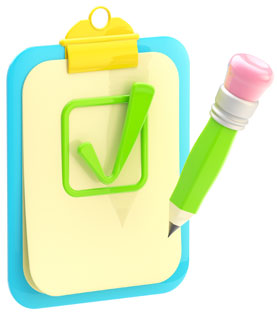Inspiration: Journaling For Health
 Whether it’s to record your life, vent feelings, or learn about yourself, keeping a diary is a healthy hobby!
Whether it’s to record your life, vent feelings, or learn about yourself, keeping a diary is a healthy hobby!
The art of storytelling is as old as mankind. Stories help us understand ourselves and the world in which we live, and to communicate understanding. Writing can also be therapeutic, allowing us to organise our thoughts and feelings, exorcise emotional demons and, often, create something meaningful and beautiful in the process.
The power of stories can be seen in the media all the time. Politicians, journalists and spin doctors create very different tales from the same basic facts, depending on what they want us to feel, think and believe. Yet we often underestimate this power in our own lives. It’s easy to focus on the negative stories we have about ourselves and forget the positive ones. This can lead to poor self esteem, low confidence, or even depression. Remembering to give positive self-stories ‘air time’ in our minds is an important way to bring balance and happiness back into our lives.
Be creative!
There is no right or wrong way to journal. Just write what comes to you and don’t worry about ‘editing’ what you write. Journals are as varied as the people who create them. Some are kept in beautifully bound books, others are home made, some have locks, some are stored on computers, or they can be written on paper as a series of letters. The only rule is that your journal is yours to create and shape as you wish.
Make believe
Writing fiction is another great way to process emotions and give meaning to life’s events. Fiction allows us to explore things to the extreme in ways we could never do in real life! What would it be like to just leave our problems and responsibilities behind? To become someone else and live a completely different life? What would work and what would surprise us?
Fiction can show us all this and more.
When my wife and I experienced miscarriage, I wrote a story about a couple going through the same thing. The characters in the story are not my wife and I, and what happens to them is different, but the emotional experience is the same. This gave me a chance to express my feelings from a safe and manageable distance, as well as create a story that communicated an understanding of the experience to others.
Both were helpful for me as I dealt with what had happened. Later I submitted the story to a competition, where it won third prize, and was published in The Northern Advocate.
Fiction can also allow us to escape from reality for a while and enjoy experiences limited only by our minds, not our bodies. Fantasy, romance, comedy and adventure stories are all great examples of this. Each one generates a different emotional response – much like different styles of music.
Anyone can do it!
Writing or keeping a journal can be rewarding emotionally, artistically, and therapeutically.
- It is easy to do and costs very little.
- A pen and paper, or use of an old computer, are all you’ll need to record your thoughts.
- Writing can be achieved despite any physical disability – Jean-Dominique Bauby wrote his bestselling book The Diving Bell and the Butterfly by blinking his left eye to spell out letters of the alphabet, belying his total paralysis following a stroke.
- One of the best ways to get into writing as a therapeutic tool is to keep a journal.
- The benefits of keeping a journal are proclaimed by counsellors, motivational experts… even Oprah!
- Writing in a journal can help you express thoughts and emotions free of guilt or stressful consequences.
- You can write down the things you wouldn’t dare say, and might barely dare to think!
- You can rant, rave, and complain without hurting the people you care about.
- You can also list and appreciate the good things in your life.
- In a journal, you can organise your thoughts and work through how you really feel about what’s going on.
- Often, once the top layer of emotion has been expressed (anger, for instance), other important things come to the surface.
Getting started
As with most things, the key to writing is to “just do it”. Sounds simple, right? If you’re wondering how to make a start, here are suggestions that work for me:
- Read a lot – see how the experts do it. What works? What doesn’t? Write first – think about whether to let anyone read it later.
- Check out books about writing from your local library.
- Explore something completely out of the ordinary in your writing.
- Choose something at random from a newspaper or dictionary and write about it.
- Write about a significant moment, event, or person in your life.
Darian Smith is a field worker for Muscular Dystrophy Northern. His fiction has been published in newspapers and journals, and his story Banshee was a finalist in the 2009 Sir Julius Vogel Awards. To inquire about Darian’s writing and storytelling workshops, phone (09) 415 5682 or email darian@mdn.org.nz